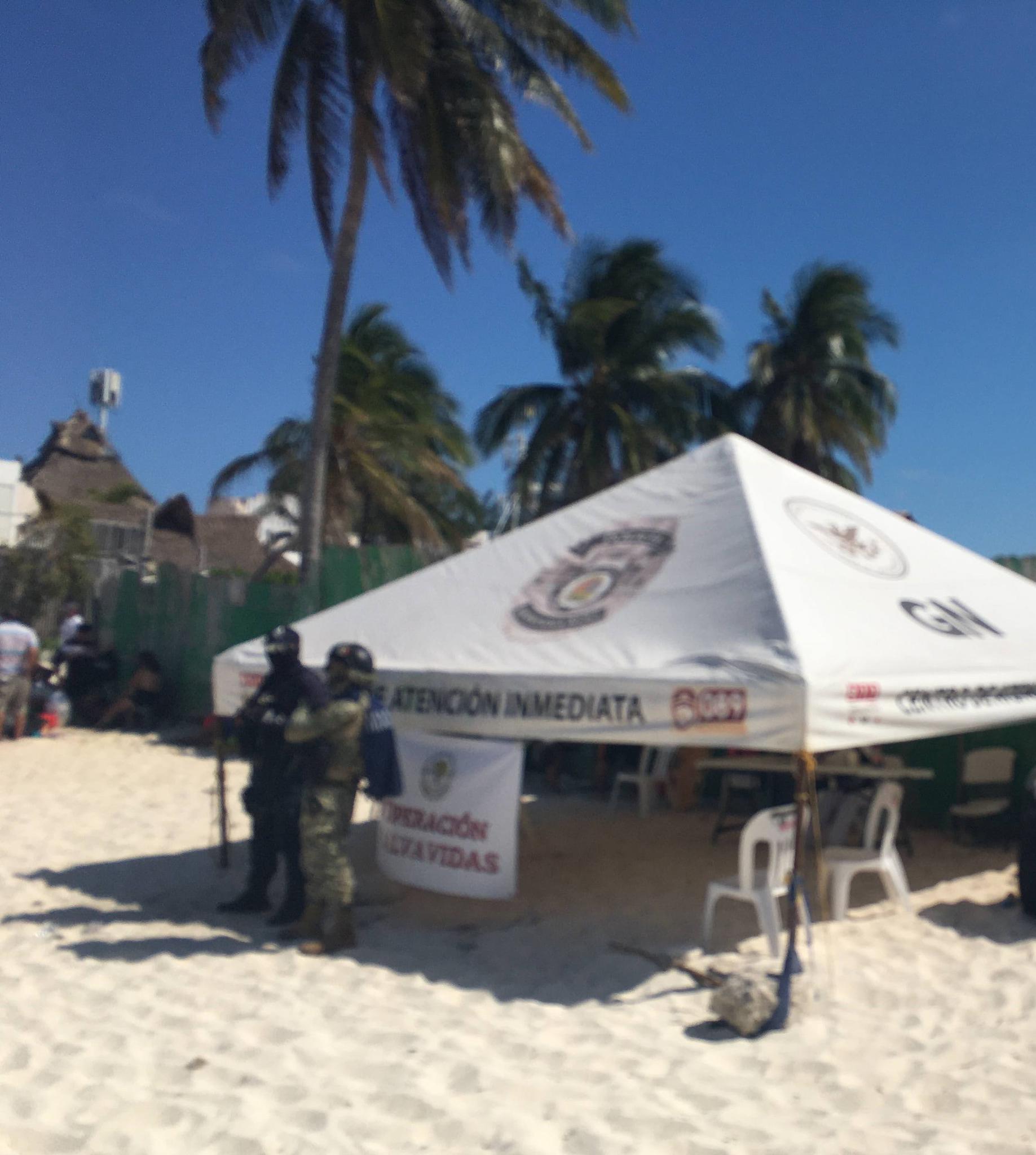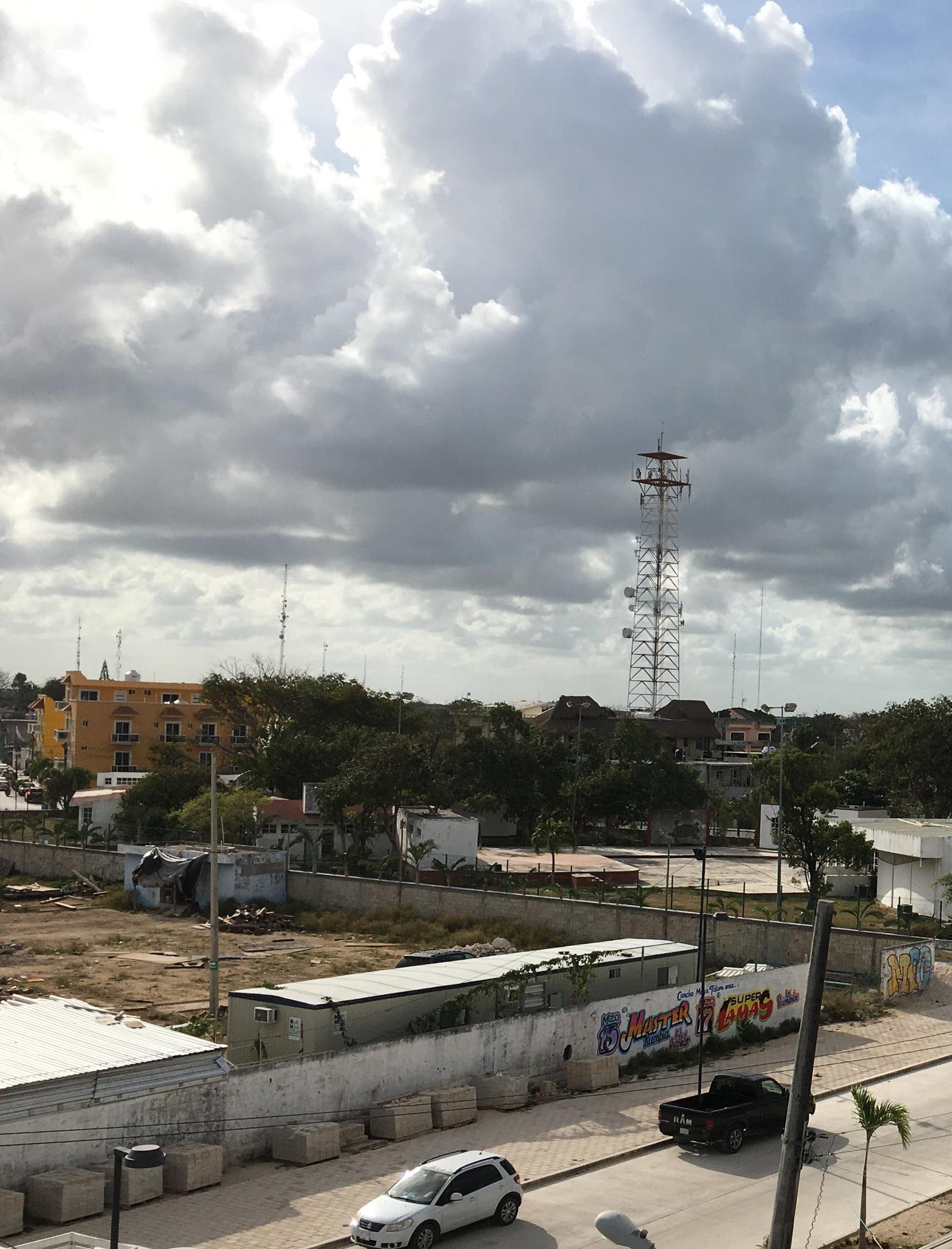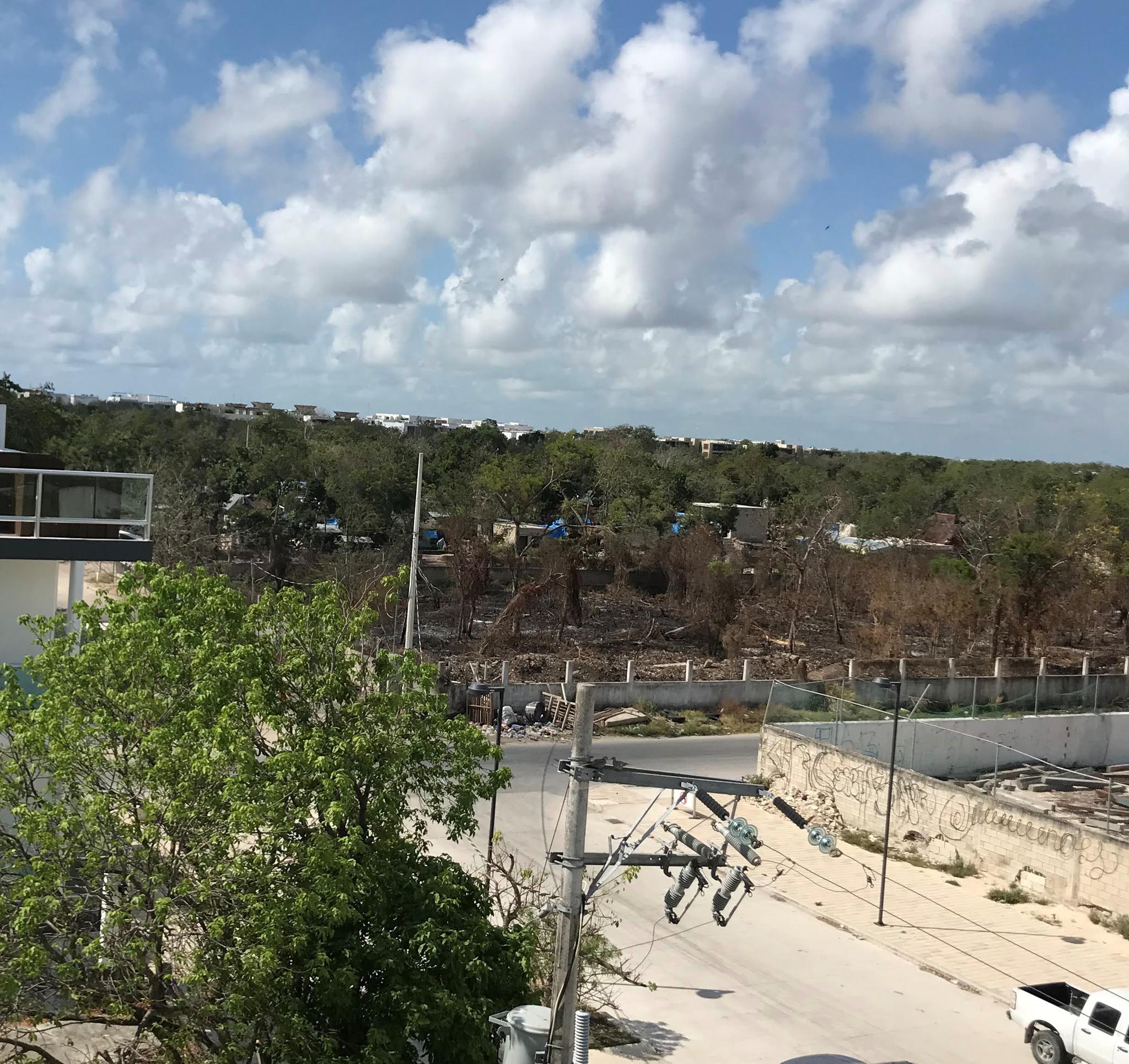Is Tourism a Blessing or a Curse for Tulum?
Is increased violence and a high cost of living a worthy price to pay for jobs?
Tulum, Mexico
April 2022
Four hours south of Cancun and two hours south of Tulum we are driving on a coastal road full of potholes on our way to Punta Allen, a town at the end of the skinny peninsula in the Sian Ka'an wildlife preserve. We pass numerous pristine, nearly empty beaches and have seen few vehicles on our journey. Suddenly a Mexican military truck appears with the words “MARINA” painted on the side. I look to my wife and say, “Those are the crack troops of the Mexican military. What the hell are they doing all the way down here?”
The entire state of Quintana Roo – which includes Cancun, Tulum, and Sian Ka’an, among other tourist spots – has seen a significant increase in violence during 2021 and the first part of 2022. Some of the violence has killed tourists caught in the crossfire. The state is highly dependent on tourism and violence is obviously bad for the tourist business. In order to combat the violence, forces from the elite Marina have been sent to the state and the police presence on beaches and tourist thoroughfares is heavy. Sadly, however, the tourist business is a partial cause of the violence.

Many foreigners come to Quintana Roo to party. You see the party boats in Cancun full of North American college kids jumping up and down as they talk about how drunk they will get, the high-end clubs and bars in Tulum where people dress to the nines, and the huge alcohol delivery trucks on every road. Unfortunately, the partygoers do not just stick to alcohol.
The sale of illegal drugs to these partygoers is a very lucrative business. Many of the bars and restaurants that serve party goers also allow drug mafias to sell their products. Most do not have a choice – if they refuse to allow the sale of drugs in their establishments, they fear reprisals. If they report to the police, they fear reprisals because the police are notoriously corrupt and will likely alert the drug mafias.
“If I were president of Mexico and I could do only one thing, I would get rid of corruption. I wouldn’t touch or worry about anything else,” says Manuel, a 45 year-old investor from northern Mexico looking to buy a rental property in Tulum. “If you take care of corruption, everything else will follow. Corruption means the police can’t be trusted. It hurts the economy and productivity. It is a cancer that infects everything.”
Indeed, corruption is a major cause of insecurity. If the police are in the hands of organized criminals and organized criminals threaten you, going to the police for help will only hurt you. Corruption means organized criminals control the state. The story is the same throughout Mexico.
This leads to violence when multiple criminal gangs try to control one very lucrative area. In Tulum, it is documented that multiple criminal gangs are vying to control the drug trade as of late 2021 and early 2022.
Corruption allows criminal gangs to prosper and criminal gangs get their money – which is the energy source of corruption – from wealthy, foreign tourists who buy their products. In the same way that consumers boycott legal goods in order not to support immoral practices – like not buying leather from endangered species or products made in countries that violate human rights – should foreign party-goers feel a responsibility to not use illegal drugs in Quintana Roo given how it contributes to the region’s violence?
Obviously, many users are going to use drugs regardless of their moral culpability and the drug use and violence do not show signs of abating. Fortunately for Tulum’s tourist industry, thus far the violence has not driven vacationers away. On the contrary, Tulum has a frontier, boomtown feel to it. On every street there is construction. There are no major roads that connect the different parts of the town and traffic can be horrendous.
On a Friday night, we exit the Sian Ka’an Wildlife Reserve. To get to our hotel in the Tulum city center, we must pass by the long strip of five-star hotels and high-end restaurants and clubs on the beach. To go just a couple miles takes two hours of crawling traffic. At 8 pm, the restaurants and bars are filling up with well-dressed patrons. This is the same strip where, just two months earlier, tourists were killed in a crossfire between gangs.
Manuel, the previously mentioned investor, says that despite the violence Tulum’s boom is just getting started. An international airport is being built in town (currently, one must go to Cancun, over two hours away, to fly) and the government is building a rail line, the Train Maya, to better connect the region with Mexico’s major cities. “Some tourist areas in Mexico are oversaturated but not Tulum. Real estate keeps going up and the building can’t keep up with demand.” His current potential investment is in a condo complex headed by Italians. “There is a lot of foreign money pouring into Tulum,” he adds.

New developments also mean work. The plentiful work in tourism attracts workers from across Mexico. Clara, a receptionist at our hotel, moved from her hometown of Merida, a few hours away on the other side of the Yucatan Peninsula. “Here there is so much work and never enough people to fill the jobs,” she says.
While there is an abundance of work, the fact that very few people are from Tulum contributes to the levels of delinquency. Merida, Clara’s hometown, is one of the safest cities in Mexico. “Merida is much safer because people in Merida are from Merida. They know each other. They look out for each other, stop to help, if there is something suspicious they notice and help each other. Here, no one helps each other, no one knows each other.”
The state of Yucatan, of which Merida is the capital, is also ranked as one of the least corrupt Mexican states. Clara affirms that the police in Merida are indeed less corrupt. “There are fewer chances for corruption in Yucatan simply because there are fewer illegal drugs, partly given that there are far fewer foreign tourists.”
Merida is also much cheaper, Clara says. Housing costs are so high in Tulum due to tourism, and availability low, that many who move to Tulum live in slums only blocks from the center of town and right next to the hotel in which we stay. “In the slums, they illegally use water and electricity from the city.” When asked why the city lets them do that and squat, she shrugs. “There are so many people living there now.” The problem, it seems, is too big to solve and so leaving it is what the government has resolved to do.
The slums are also a source of violence, Clara says. “If someone goes into the slums, they will likely be robbed. Gangs also operate out of the slums.”

A high percentage of people from other regions move to a town. It is hard to build community when people do not know each other. A lack of community also contributes to insecurity as people cannot lean on those around them. The large number of people who move to the town are drawn by tourist dollars. The tourists, however, generate a demand for illegal drugs which leads to turf wars between those that want to supply those drugs. The profits from the drug trade also line the pockets of the police which then feeds further violence as the police are in the pockets of the drug dealers and thus do not stop the violence. The violence threatens to drive away the tourists but has not yet. Oh, and the cost of living for everyone is high. But, there is work (which can’t be said of the places from where the people moved from).
Is tourism a blessing or a curse for Tulum?
